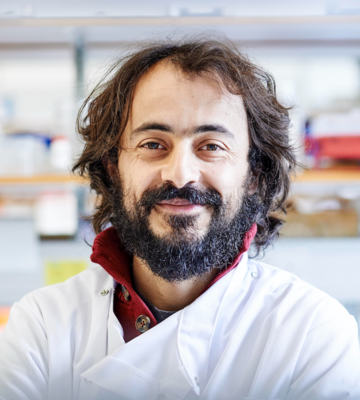Fellowship to Hugo Fernandes Paves the Way to Improved Treatment Options for Dementia
Congratulations are in order for Dr Hugo Fernandes who has been awarded Alzheimer’s Society Dementia Research Leader Fellowship. With this award, Dr Fernandes will reveal the role of dysfunctional lipid metabolism in dementia using innovative self-designed tools and models to identify new therapeutic targets.
There are more than 10 million new cases of dementia around the world each year, which amounts to one new case every 3 seconds. Presently, more than 55 million people worldwide are living with dementia and this number is expected to double every two decades.
Despite the well known prevalence of the condition, our collective understanding of the early molecular mechanisms that leads to neuronal dysfunction and loss in dementia remains limited. Consequently, there is currently neither a cure nor effective treatment options to prevent or reverse neuronal loss in dementia. In order to develop new preventative approaches and treatment options, a better understanding of the underlying cellular alterations preceding the loss of these neurons is urgently needed.
Lipids, representing more than 50% of the adult human brain, are essential for healthy cellular function. They are well known to become dysregulated during ageing and dementia, yet despite remarkably strong genetic evidence, the impact of lipid alterations in human neurons in dementia remains unknown. A major obstacle to overcoming this knowledge gap is the lack of both adequate tools and mechanistic studies in human neurons.

To tackle this problem, Dr Hugo Fernandes from the Wade-Martins group based at the Kavli Institute for NanoScience Discovery has been developing new tools and cellular models to enable him to reveal the role of lipids in dopamine and cortical human neurons using induced pluripotent stem cells (iPSCs). Dr Fernandes says: "I recently found that changes in specific lipids in human neurons are associated with selective neuronal vulnerability and I hypothesize that lipids are key driving factors in dementia that could provide novel biomarkers and targets for disease intervention."
Dr Fernandes has now been awarded a five year Alzheimer’s Society Dementia Research Leader Fellowship for his project titled 'Molecular mechanisms of impaired neuronal lipid metabolism in dementia'. According to Dr Fernandes: "This project will contribute to a better understanding of the cellular mechanisms underlying dementia, by addressing an important knowledge gap in the field. It will lead to the identification of novel disease targets that may lead to new therapeutic opportunities and biomarkers for early diagnosis of dementia. This project will therefore seek to advance our understanding of the causes of dementia and to provide better treatment options to improve patients' quality of life."
The Alzheimer’s Society Fellowship supports exceptional researchers who want to build on several successful years of research and are ready to begin an independent research career. The scheme is designed for research leaders who have the ambition and skill to conduct excellent quality and innovative research, build a positive research culture, and drive change for people affected by dementia.
Dr Fernandes says: "This fellowship will allow me to begin an independent research career and to build my own research group focusing on the role of cholesterol biosynthesis, lipid droplets and fatty acids in neuronal vulnerability and resilience, using iPSC-neuronal models, single-cell multi-omics analyses, and genetic CRISPR screens. I am very thankful to the Alzheimer’s Society for this Fellowship award and to DPAG for the support provided. I look forward to working together with colleagues within DPAG and the Kavli Institute and to engage with the local patient community on my future research plans."
Source: DPAG Website
Since April 2021, Oxford University's KAVLI Institute for Nanoscience Discovery is proudly serving as a hub for research groups from seven different departments spanning both the medical and physical sciences, including Professor Richard Wade-Martins from the Department of Physiology, Anatomy and Genetics.


